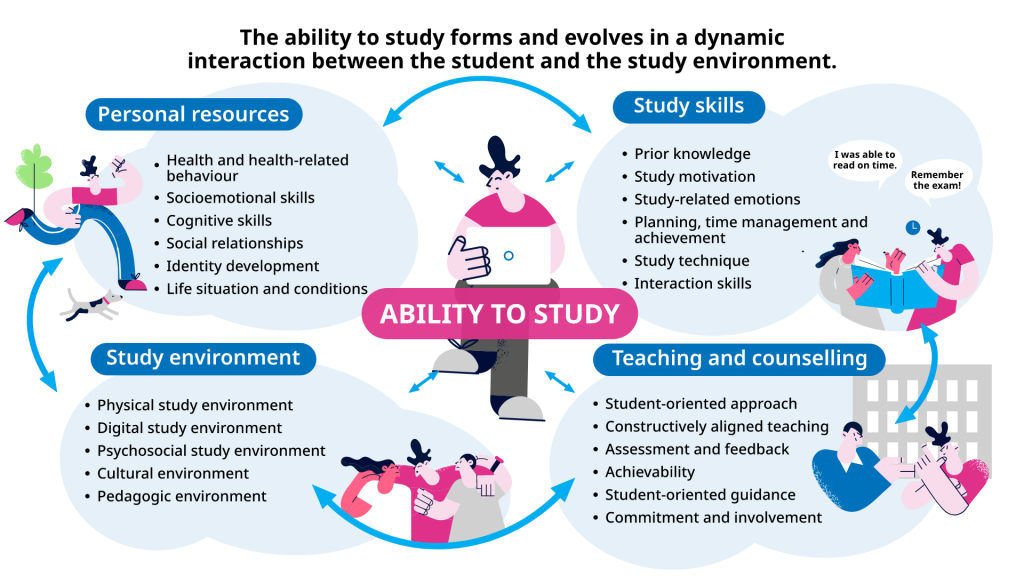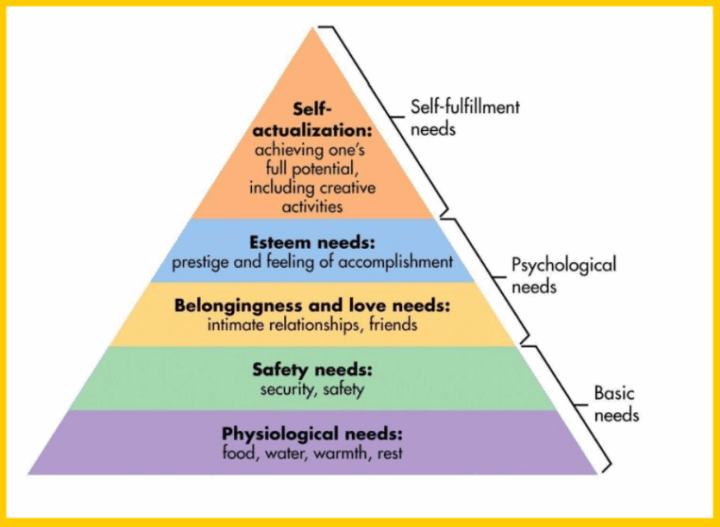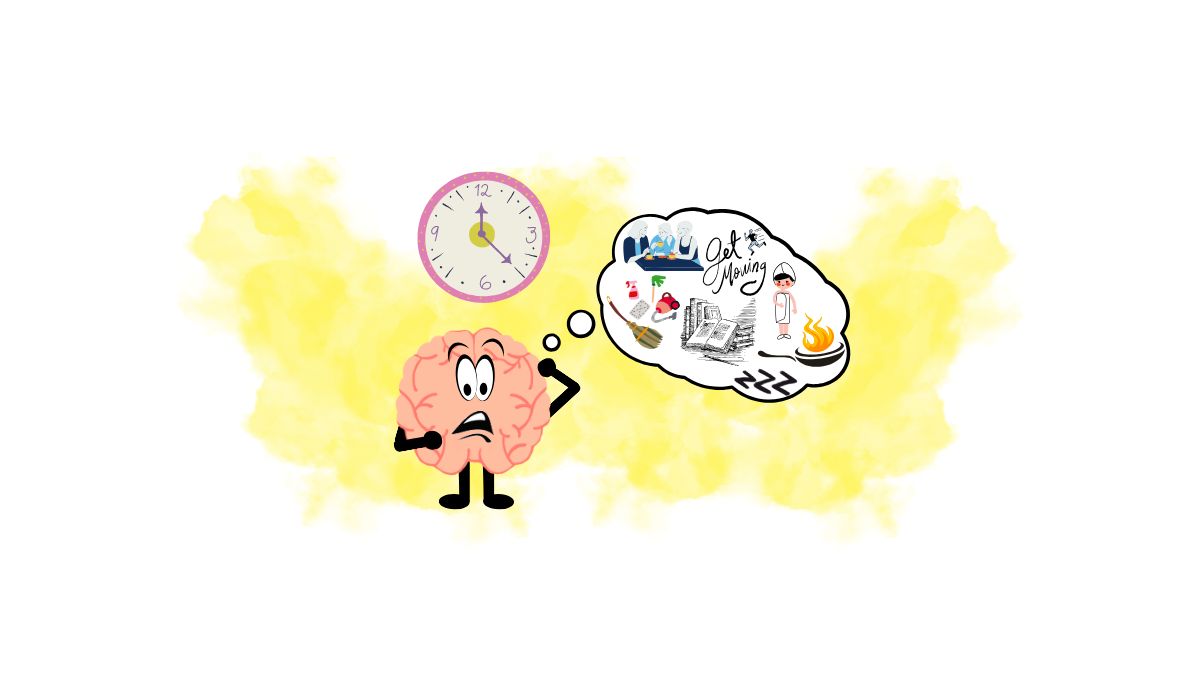Study Well-Being
Daily self-care is the foundation of overall well-being and functioning everyday life. When the founding pillars – like sleep, nutrition, and exercise – are in balance it’s easier to manage different areas in life and take care of further needs you might have.
“I get so lost in where I want to go I forget that
the place I’m in is already quite magical”
– Rupi Kaur
FSHS: Ability to study model

FSHS is the Finnish student health services and they have created a model describing learning ability. Work ability in general is widely talked about but studying is different in nature and is often left out of the conversation. Learning ability is student’s work ability – ability to study.
Time management
In student life balancing all the different areas of life and all the independent work can be burdening and difficult. It can feel like you run out of hours all the time. Procrastinating is tempting while duties are still causing stress. It is possible to get better at time management though, and there is light at the end of to-do-list!
How to manage time?
- What is time management? – Nyyti ry
- Time daily activities to a digital calendar – it’s always with you!
- Eisenhower matrix to support prioritizing and scheduling
- Apps to help you to stay focused:
- Focus friend – It has a cute bean character who knits socks when you have focus mode on. If you open any other apps while the time you have set in, they give up and those socks are lost. With the socks you can buy furniture for your bean friend!
- Forest – On this app you grow a forest one tree at a time. During the time you have focus on a tree will grow and if you leave the app, the tree dies.
Motivation
Studying isn’t always only motivating and inspiring, but it’s possible to trick your mind to find motivation even in things you find difficult or uninteresting. In your studies making progress toward graduation for example, can be a valid source of motivation. Every small step is always closer to completing your degree!
How to maintain motivation?
- Taking care of yourself is the base structure – sleep, nutrition, exercise and routines support motivation
- Notice your state of alertness. If necessary it can be manipulated.
- Spoil yourself after hard and uninteresting tasks – it will stimulate brains natural reward system
- Maslow’s theory about hierarchy of needs – it is hard to study if our basic needs aren’t met

Loneliness
Loneliness is an inner experience that usually brings up difficult and unpleasant emotions. Research has shown that loneliness activates the same areas in the brain as physical pain. A person can feel lonely even when surrounded by people. Loneliness can be helped, and support is available to help with coping with it.
Support for loneliness:
Financial management
Financial worries are very common in student life. Financial issues come in many different forms. Don’t be afraid to seek support.
Free support is available:
- Info Finland – Financial problems
- Takuusäätiö – Debt helpline & ask about money -chat
- Financial counceling clinics
Recovery & DRAMMA -model
Wellbeing and leisure: turning the spotlight on recovery ((DRAMMA model, Newman, Tay & Diener 2014)
Leisure time is where physiological and psychological recovery from stress can take place. Often people think that lounging on the couch is enough to de-stress but in reality our mind is more complex and needs a diverse recovery plan. We can approach the psychological recovery process through the DRAMMA model which includes six psychological needs connecting leisure to better well-being. Plus we added one bonus need at the end of the list.
Let’s take a closer look at the DRAMMA model:
- Detachment > (psychological rest) Hobbies and such that take a way your thoughts from stressful situations.
- Relaxation > (Sensory rest) Do something fun that doesn’t strain your mind nor body.
- Autonomy > (Emotional rest) Identifying what makes you happy, what’s important to you; defining your values and living by them.
- Mastery > (Creative rest) Learning new skills or improving existing skills during leisure time, providing your mind with stimulus for ex. forest walk
- Meaning > (Spiritual rest) Doing things that add value to your life. What are your core values?
- Affiliation > (Social rest) Spending time with people who give you energy and with whom you can be yourself with.
- Physiological recovery > remember to sleep!
Recovery experiences (1–4) help to reduce the negative effects of high demands on our well-being. Have you ever paid attention to the different ways in which you recover?
Source: Virtanen, Anniina. 2021. Psykologinen palautuminen.

